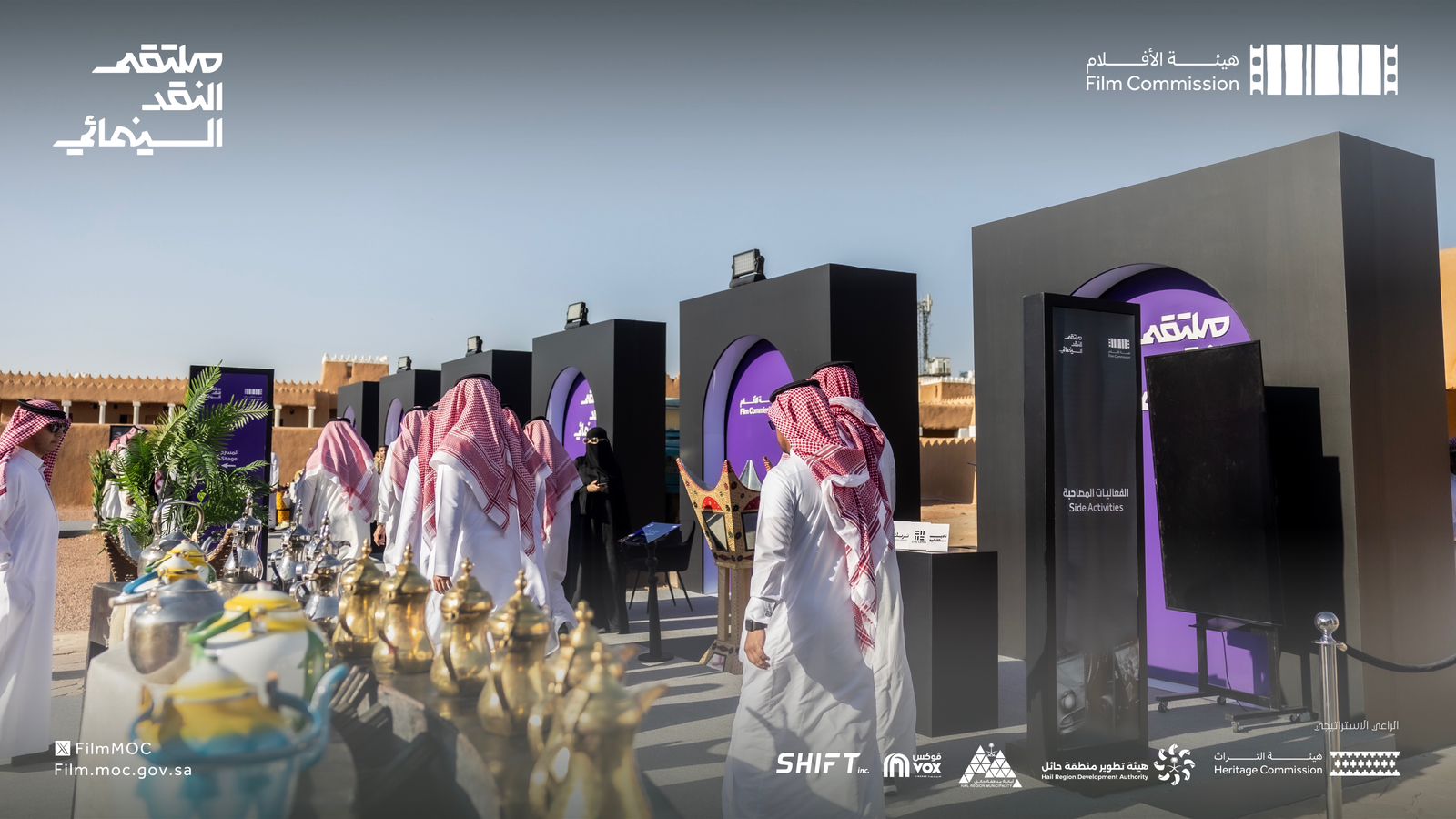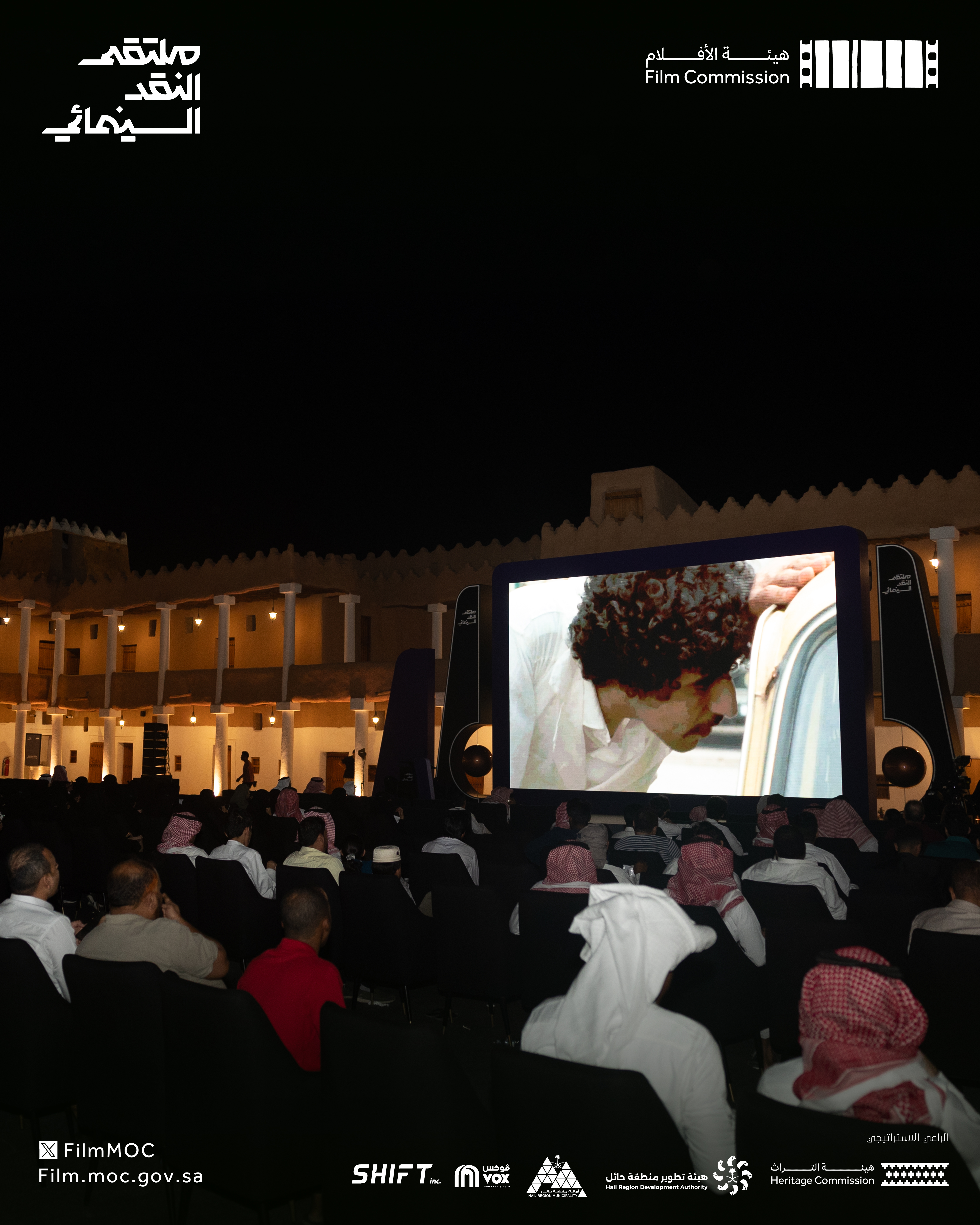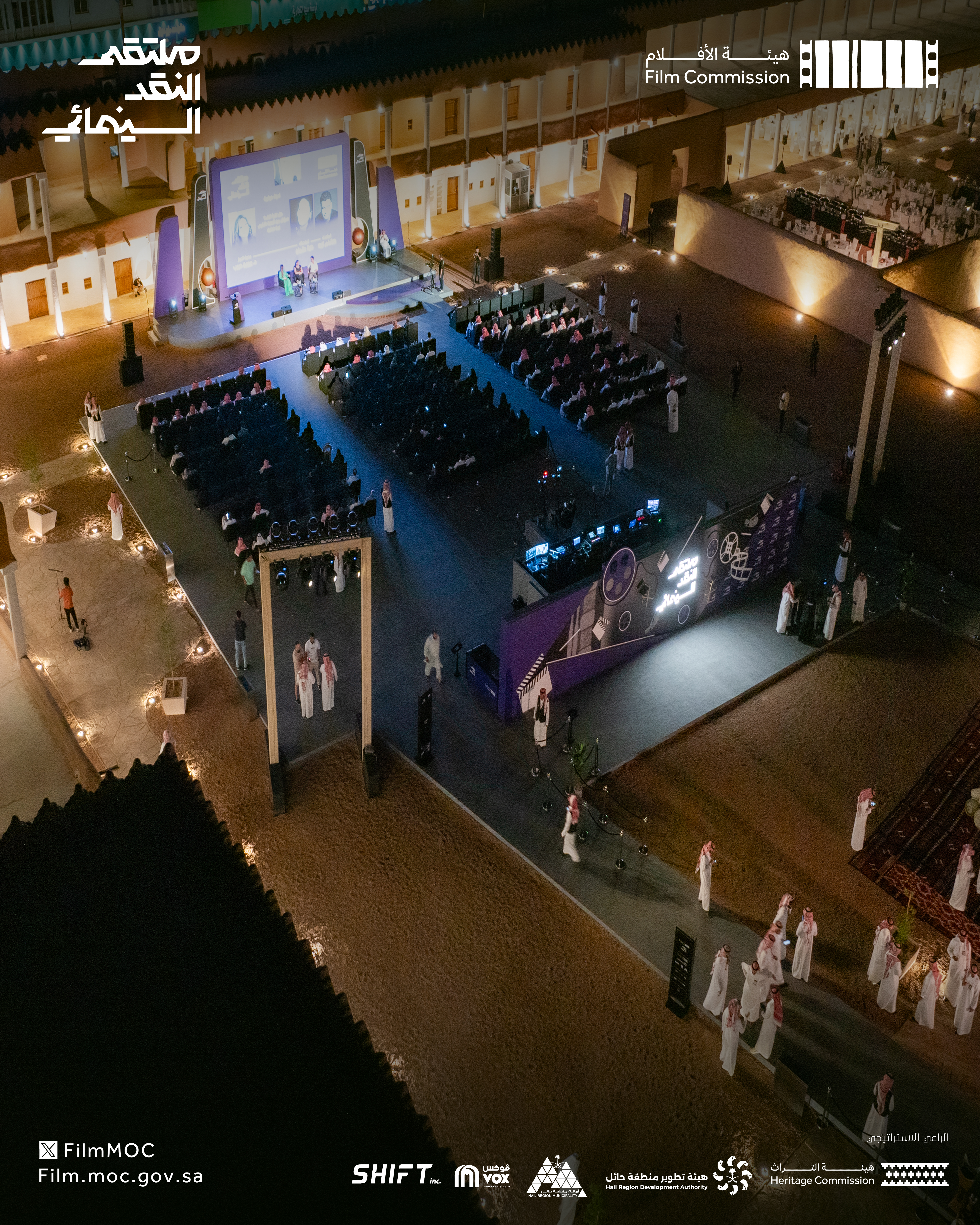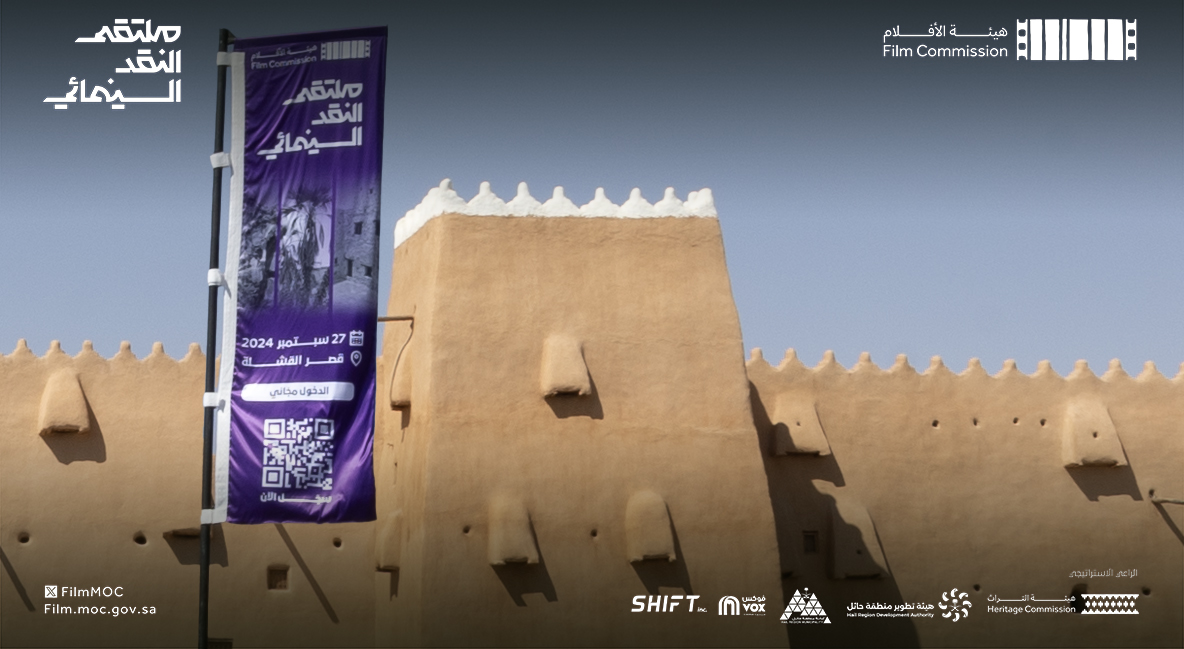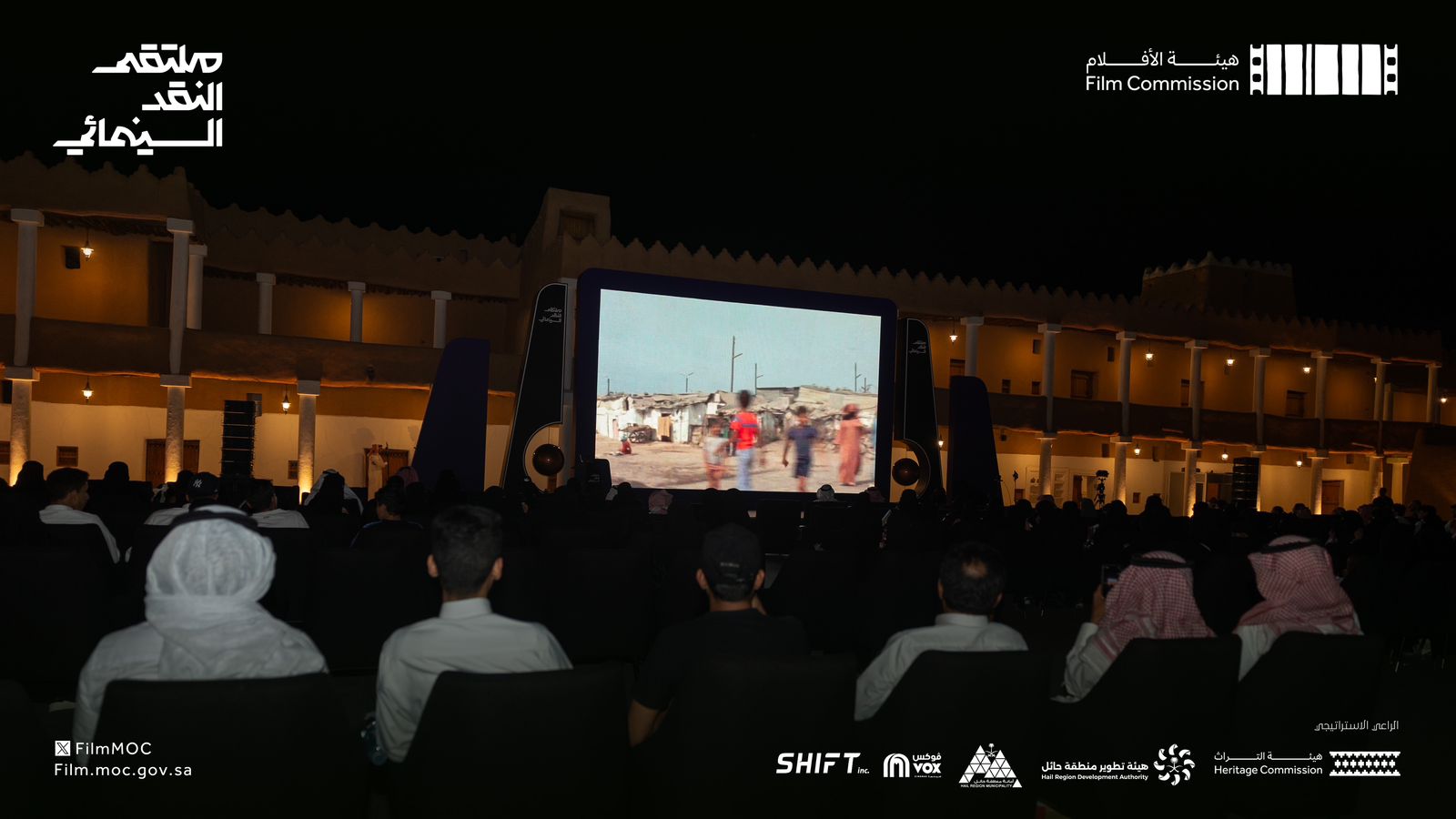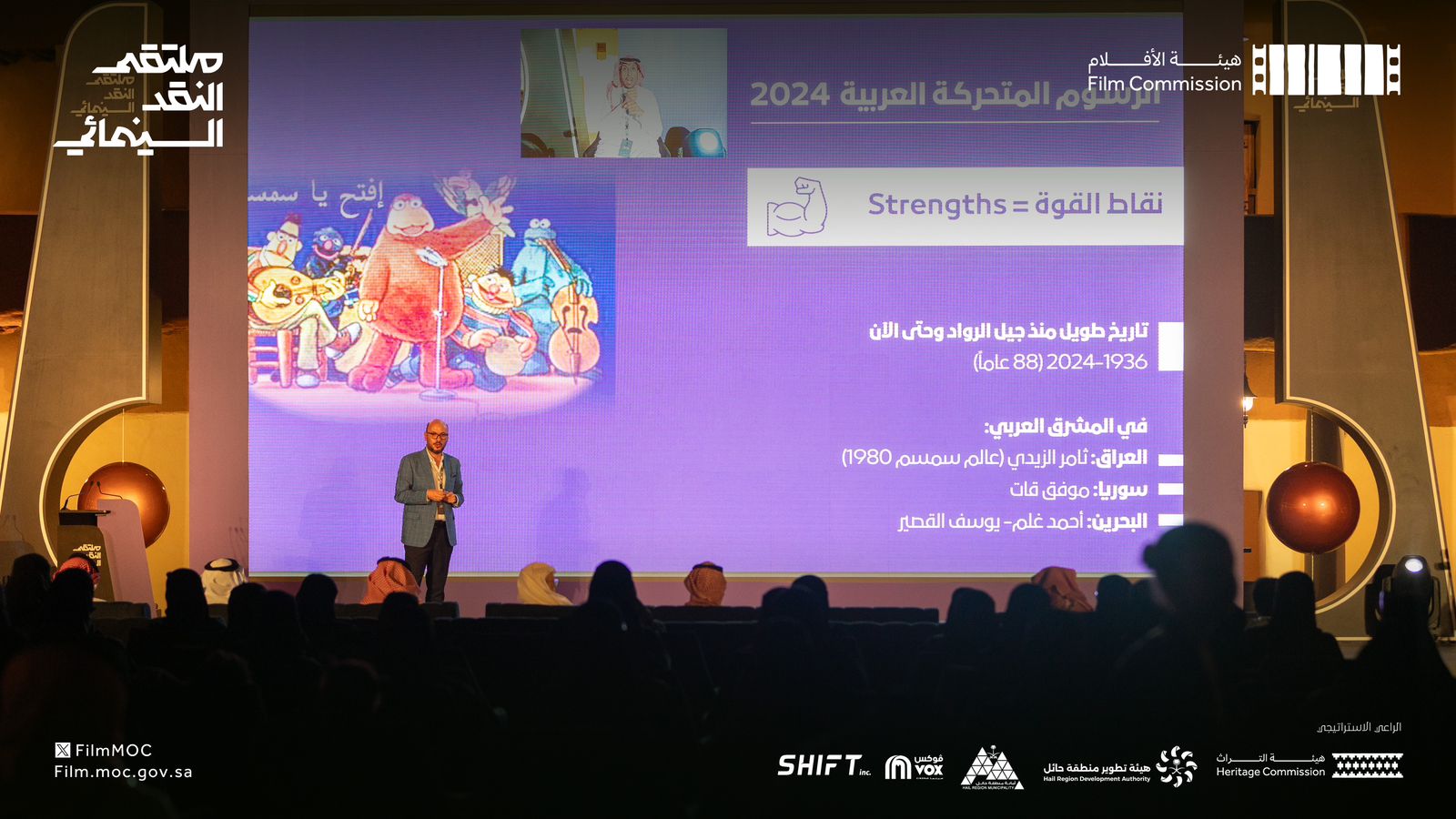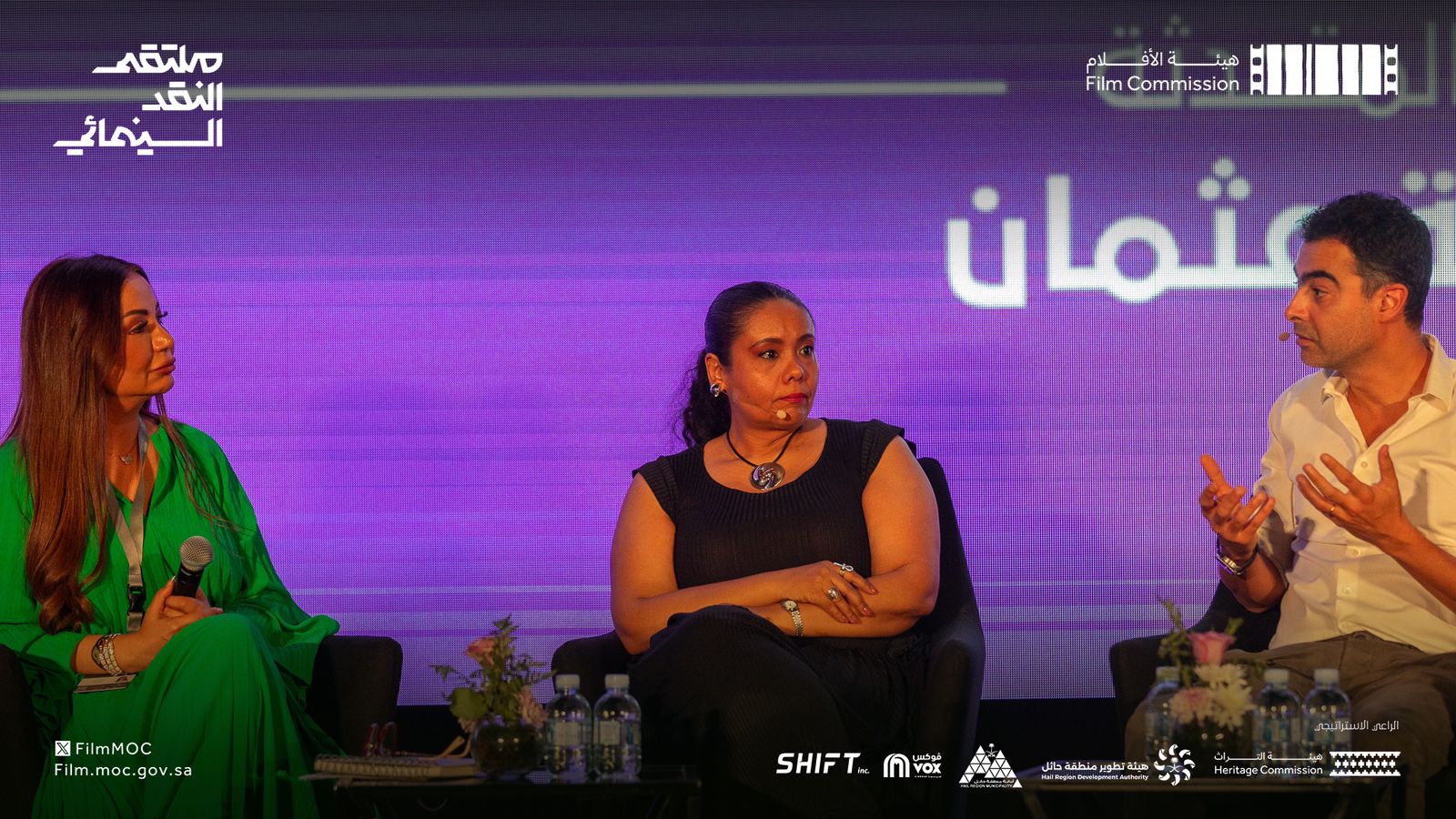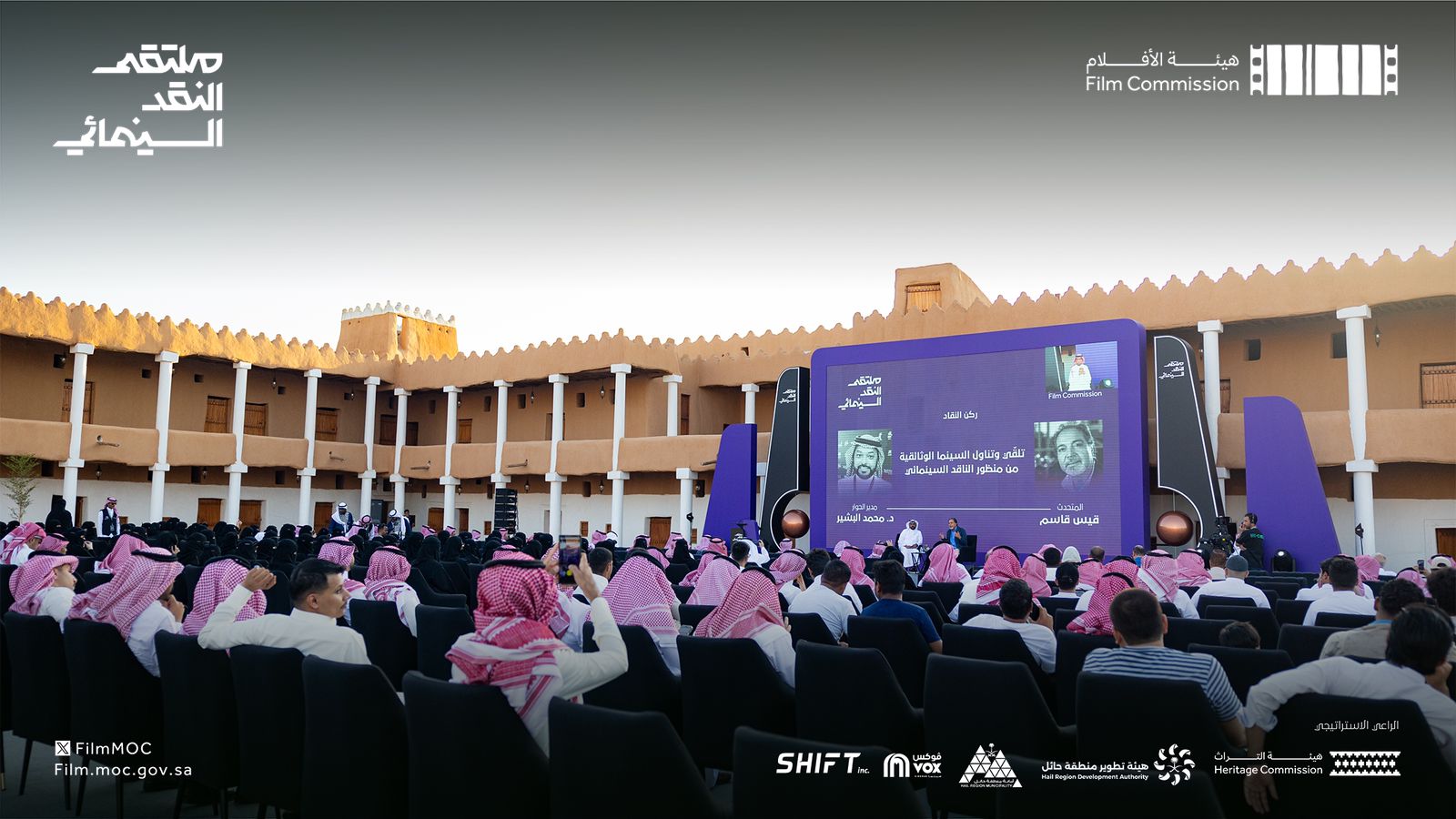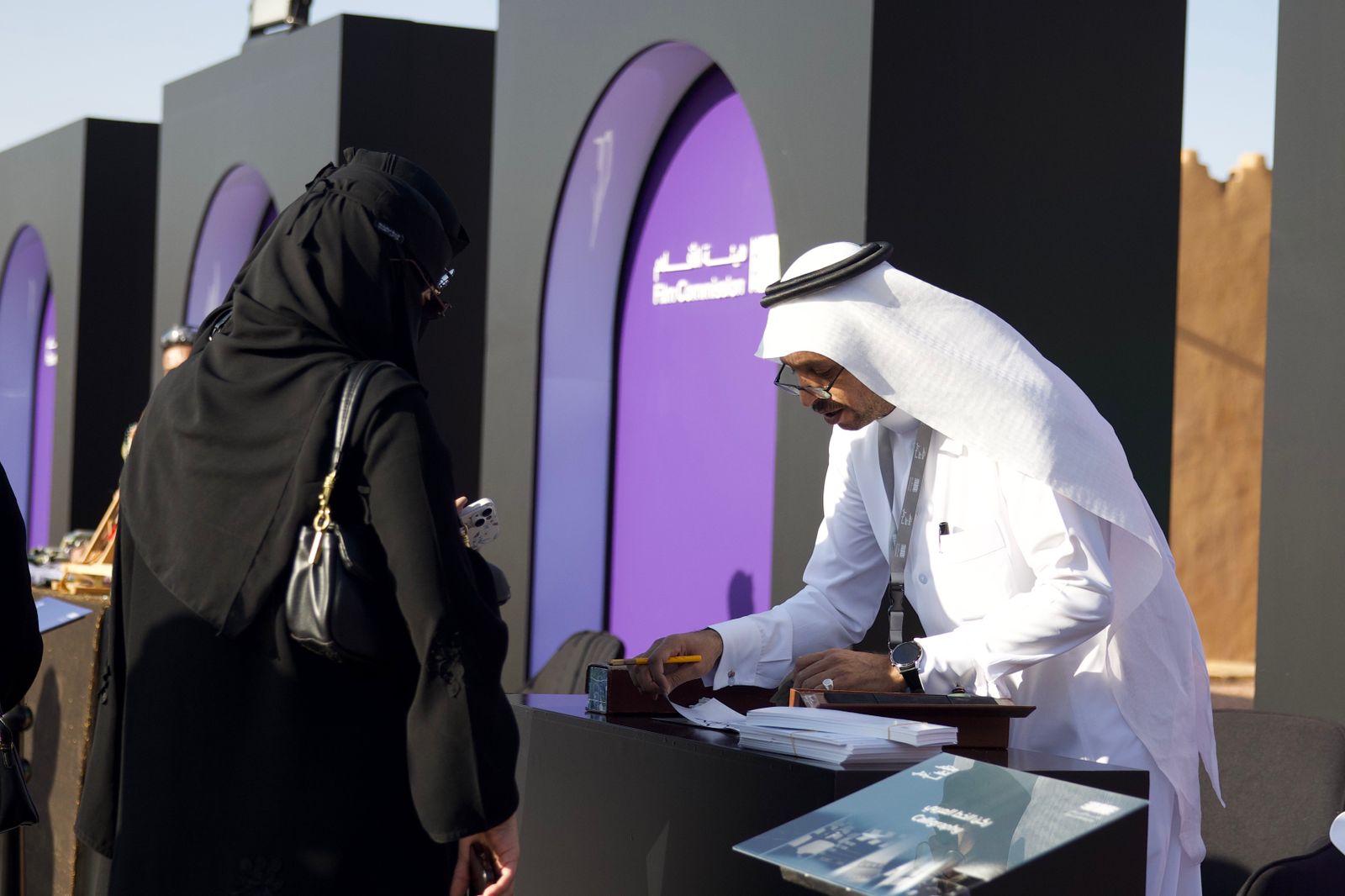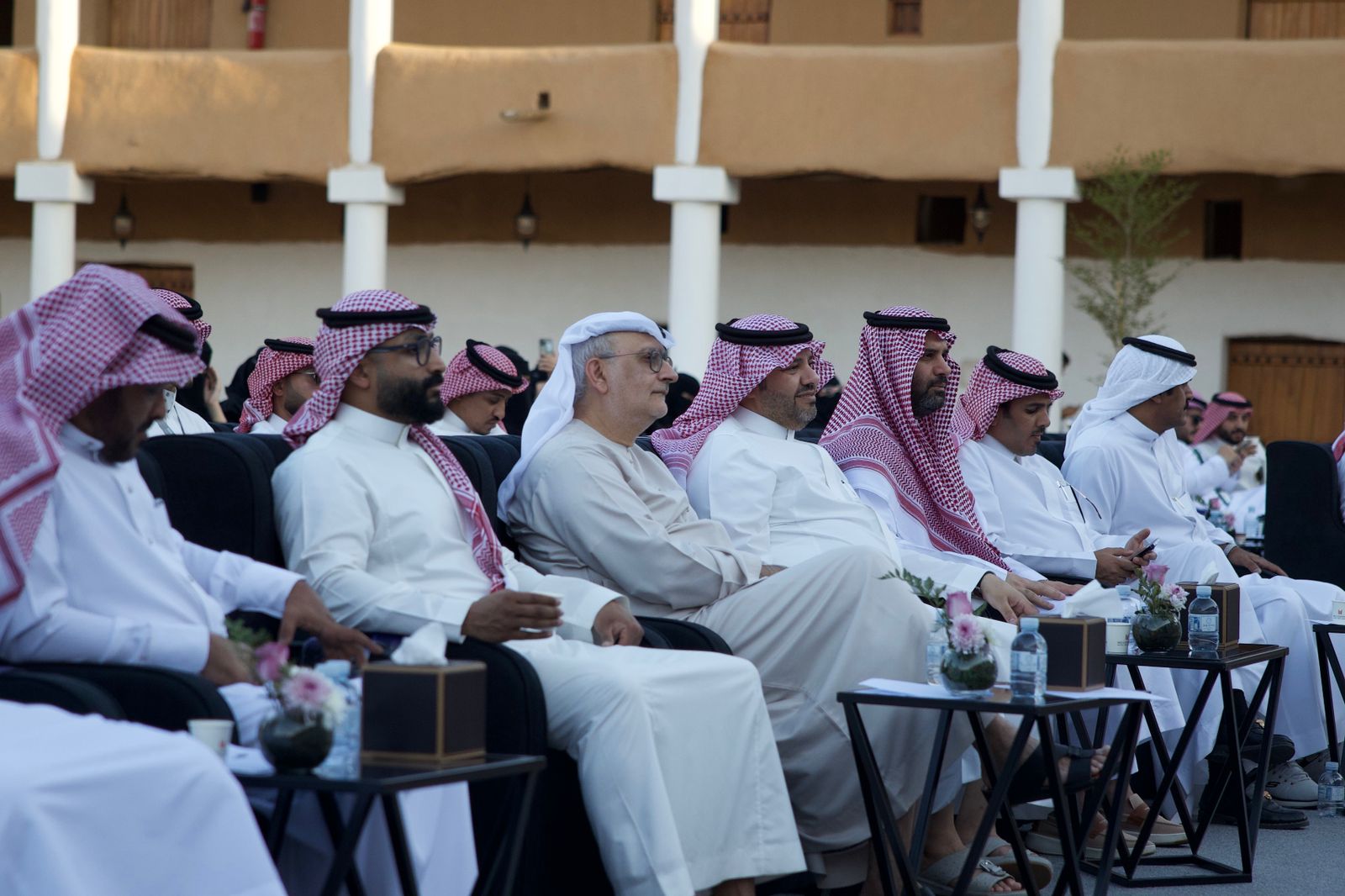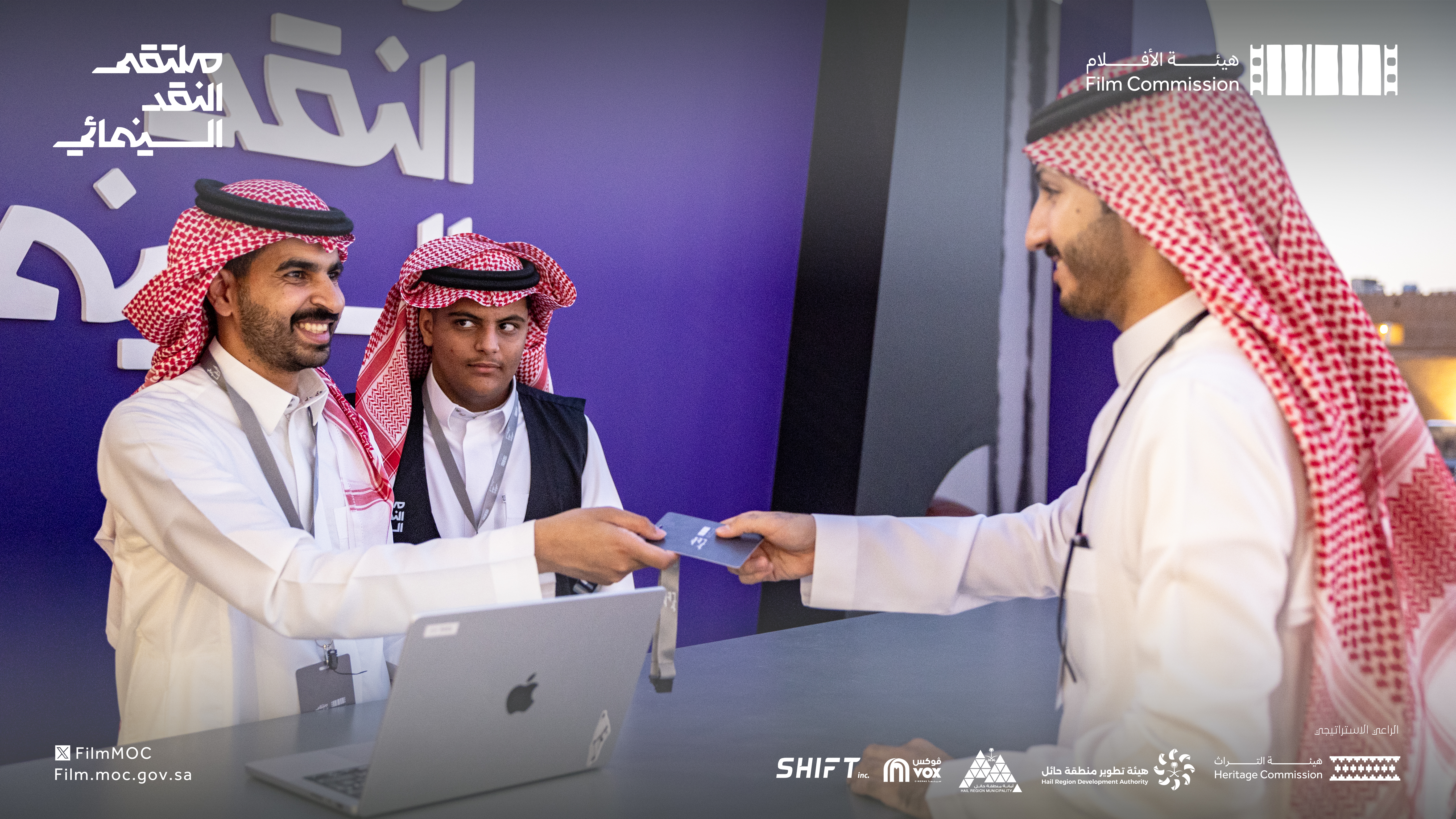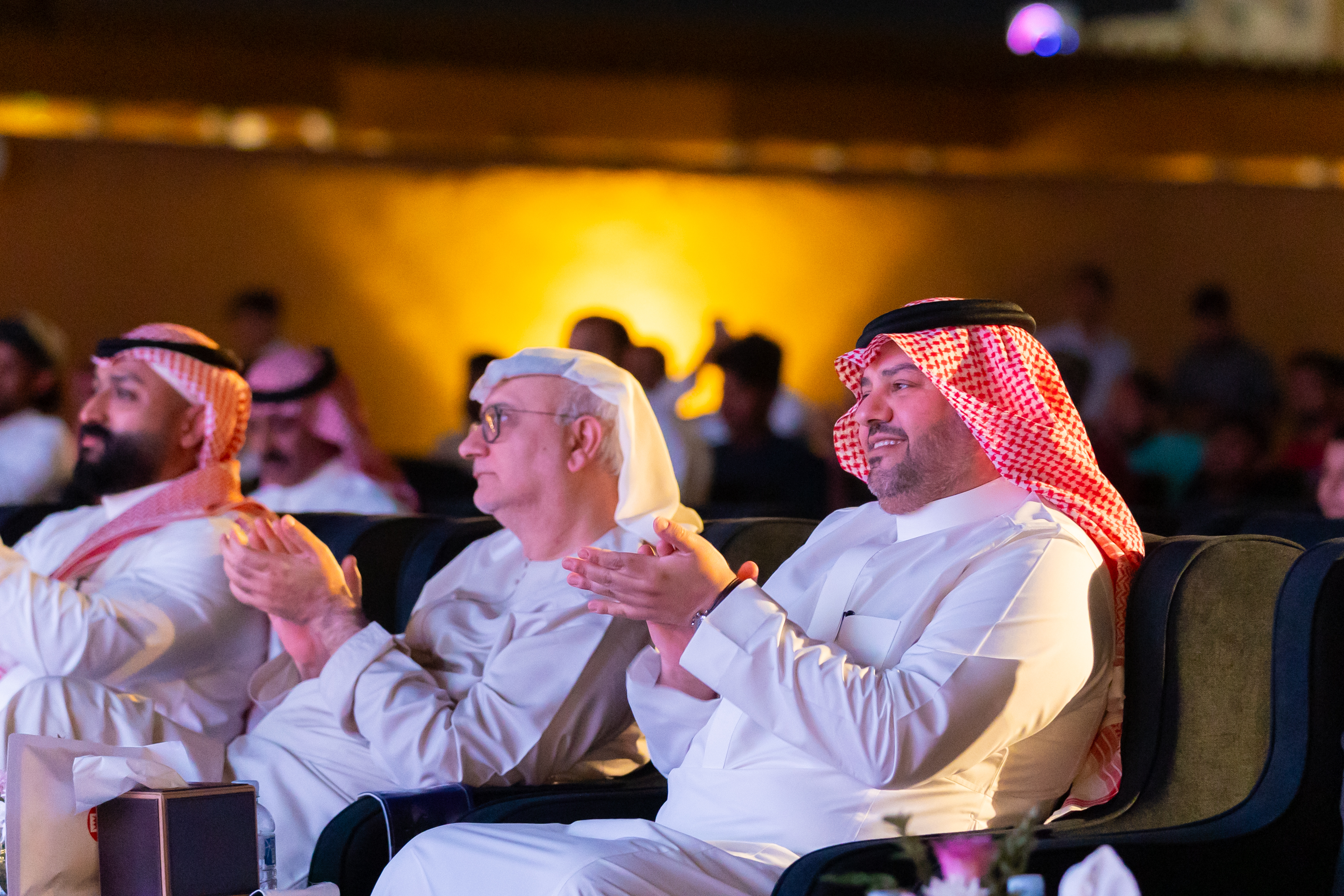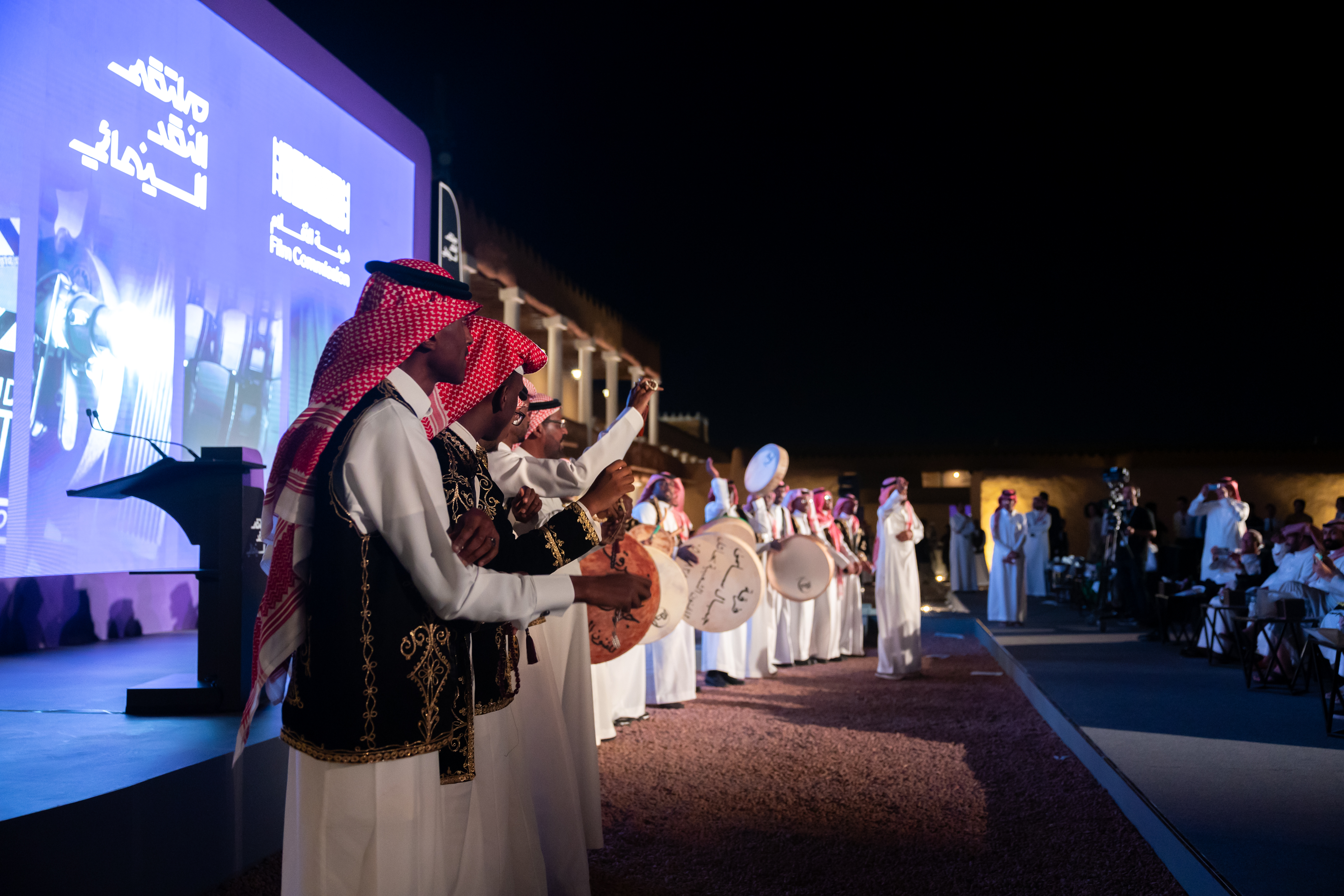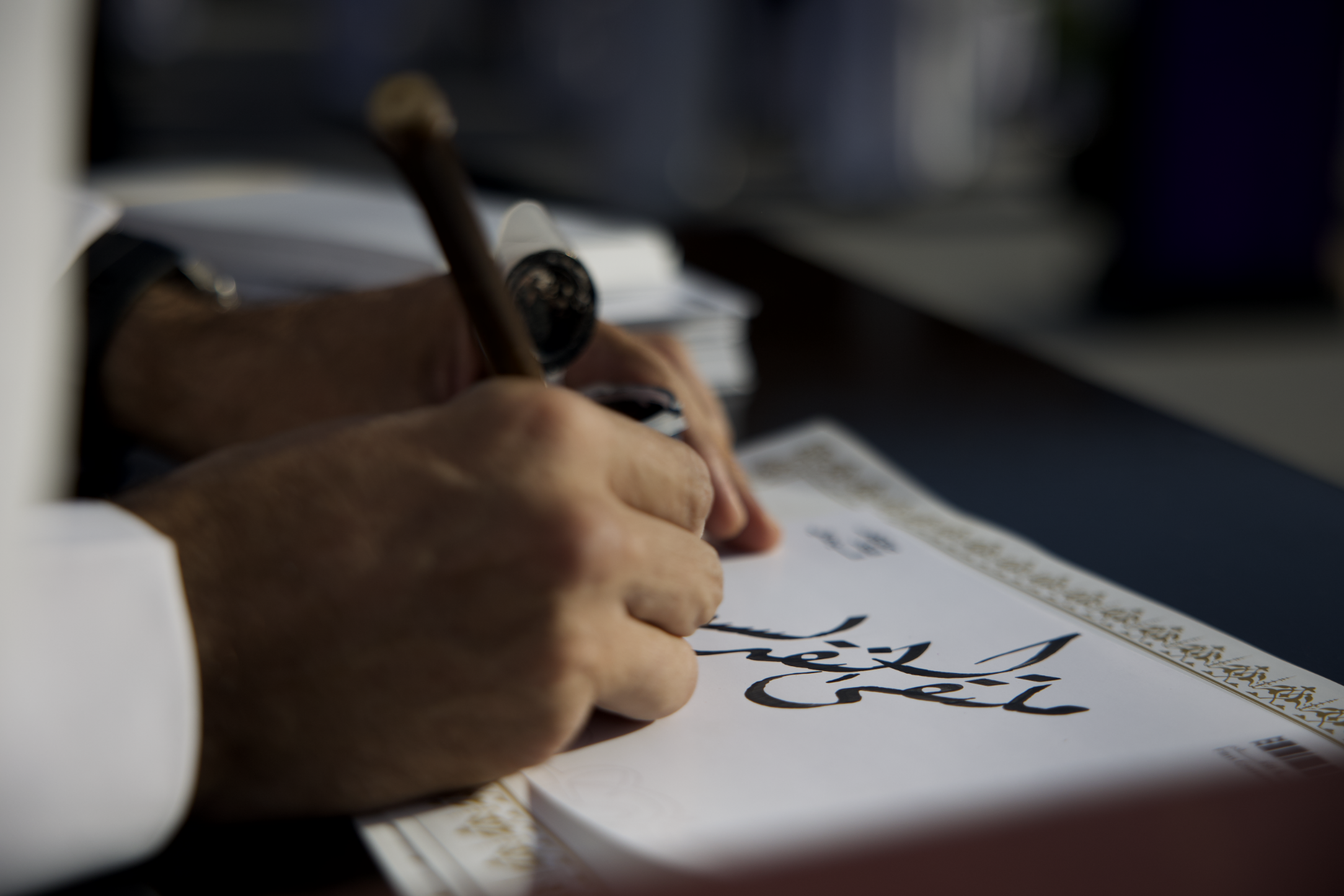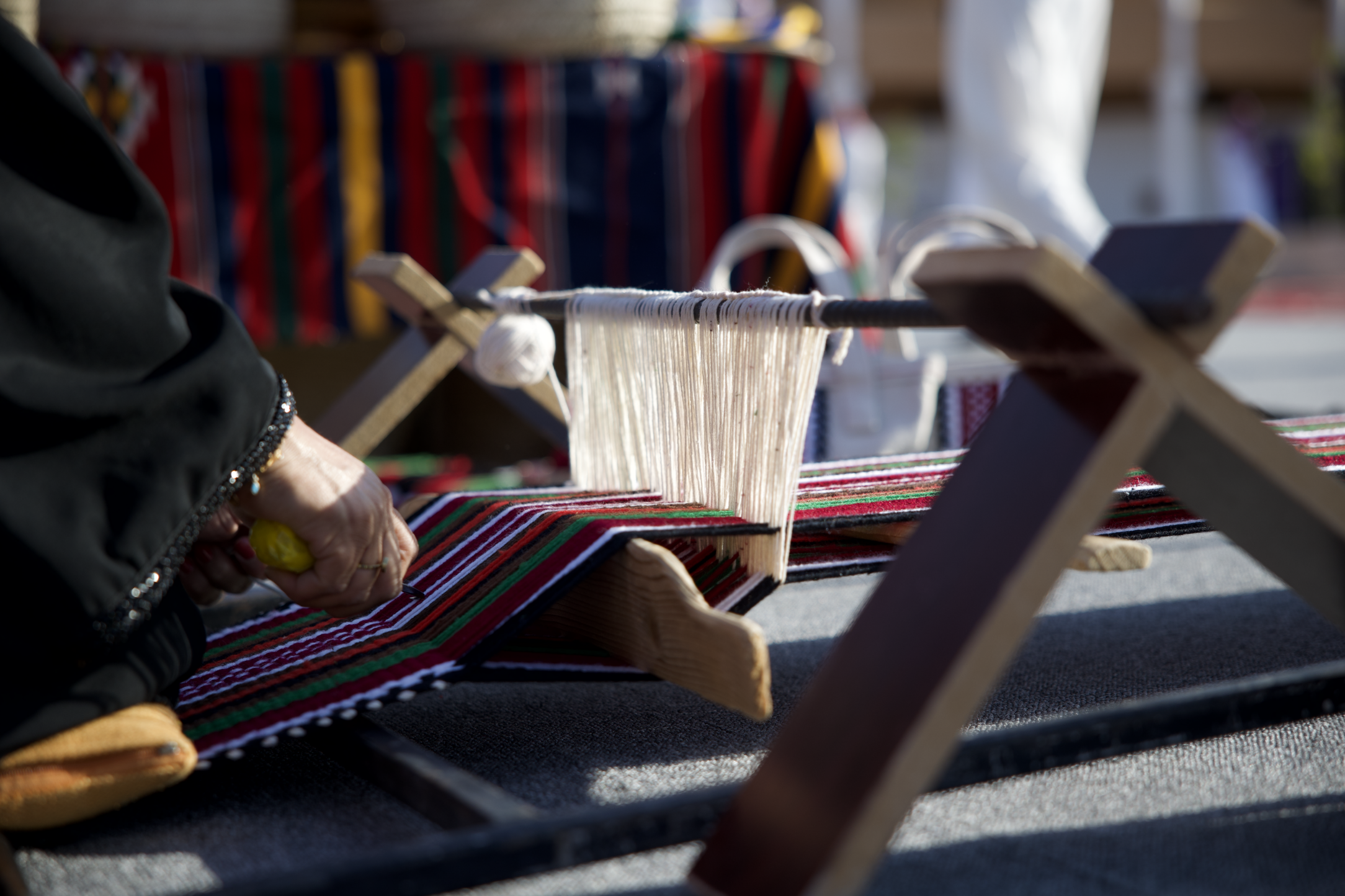The Hail Film Criticism Forum, organized by the Film Commission in the Hail region under the umbrella of the Ministry of Culture in the Kingdom of Saudi Arabia, serves as a vital platform for cultural anc critical exchange within the region. It plays a crucial role in stimulating critical and research movements in the film industry, while also enriching cinematic knowledge.
The forum offers a unique opportunity to revisit and re-experience films from diverse perspectives through a variety of activities, including film screenings, discussion panels, seminars, and specialized workshops.
Sound, an intangible element that eludes the camera lens, nonetheless profoundly influences the cinematic experience. It reflects the skill and creativity of filmmakers, as the film's soundtrack seamlessly intertwines with the visual rhythm to craft a captivating atmosphere that enhances the sensory experience of the audience.
In the absence of music, natural sound becomes an indispensable artistic tool, drawing viewers deeper into the film's world. This magic extends to the subtle sounds of nature, bodily sounds, sound effects. and even the sound of silence in dialogue-driven films..
How do film critics engage with documentary films? What influence do they have in shaping public perceptions of this unique cinematic form? This discussion will explore these questions and more, focusing on the relationship between critical reception and the analysis of documentaries. highlighting the methods that critics use to evaluate this unique cinematic genre.
Critics Corner
"Receiving and dealing with documentary cinema from the perspective of a film critic"
Seminar Title
Do you read criticism?" A question from the other side between two "generations
The role of technicians in film production is undeniably crucial, yet their connection with critics and their engagement with film criticism often remains unclear. How can critics delve into the technical achievements of those behind the scenes, offering insightful analysis that appreciates both the creative and technical elements of a film? Furthermore, to what extent does film criticism shine a light on the artistic contributions of technicians, enriching the narrative and reflecting the director's vision? This seminar seeks to explore these questions, bridging the gaD between technical craftsmanship and critical appreciation.
Presentation
Arab Animation, 90 Years of Challenges and Aspirations
In the age of artificial intelligence, ensuring the originality and distinction of media and creative productions presents significant challenges. How can we explore the future of animation in the Arab world amidst these evolving complexities?? Moreover, how can we recognize and leverage the potential of Arab animators to captivate the global audience with their distinctive narratives? This lecture will offer a comprehensive analysis of the animation landscape in the Arab world, examining its strengths, weaknesses, opportunities, and threats from 1936 to the present day. Through this exploration, we will uncover how Arab animators can continue to inspire and influence the world with their creative stories.
Dr. Mohammed Ghazala
AssistantProfessor, Head of the School of Cinema Arts at Effat University_JeddahWith Critics
"Al Hal," directed by Ahmed Al-Ma'nouni, explores the influential Moroccar musical band Nass El Ghiwane, which was established in the 1960s in Hay Mohammadi-one of the most impoverished yet culturally vibrant neighborhoods in Casablanca, in one of the alleys of Hay Mohammadi, which has a historical and social significance in Casablanca
Ahmed Al-Ma'nouni
Moroccan film director and writer
"Alhal" and the documentation of popular music
Al Hal" stands out as a seminal film in the early documentation of the popular music movement. By focusing on Nass El Ghiwane, which emerged from the Mohammadi neighborhood in Casablanca during the early seventies of the last century, Al-Ma'nouni highlights the band's profound impact on Moroccan culture. His work is a testament to the remarkable brilliance of Moroccan cinema, reflecting a unique blend of narrative depth and visual artistry.
Abdul Mohsen Al-Mutairi
Director and Film Critic
Film
Ahmed Manoni
year :1981
Film :88 Min
The film "El Hal" is recognized as one of the pioneering works that explore both musical and documentary aspects of cinema. It provides an in-depth look at the band “Nas El Ghiwane”, immersing viewers in their original environment in the Hay Mohammedi district of Casablanca during the 1970s.
